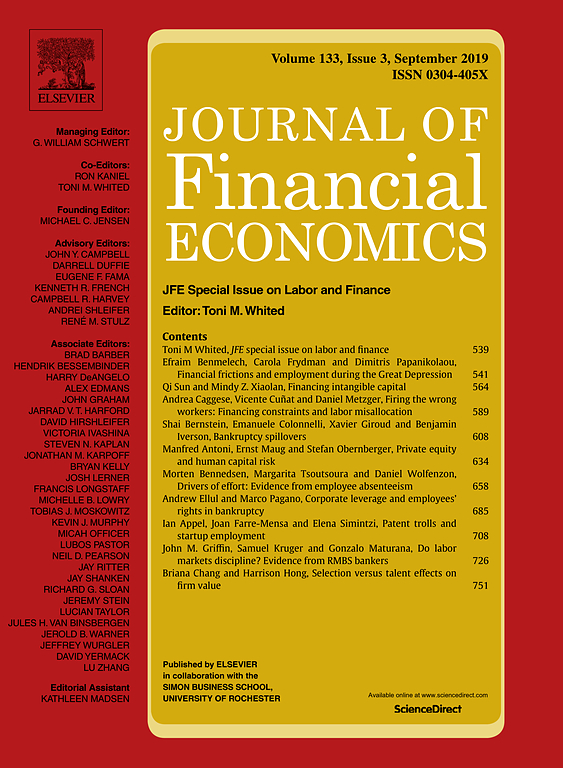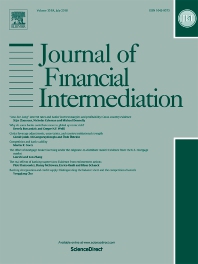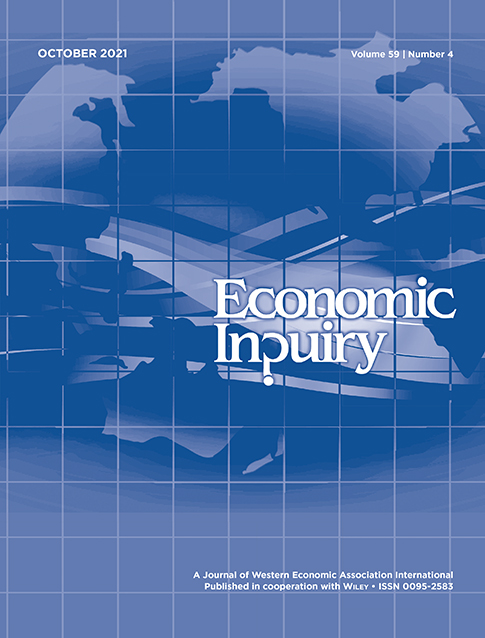Anpassungsfähigkeit und Resilienz des Finanzsystems
Diese Forschungsgruppe untersucht kritische Aspekte der Anpassungsfähigkeit und Widerstandsfähigkeit von Finanzsystemen. Sie analysiert die Auswirkungen von Naturkatastrophen auf Finanzsysteme, die Auswirkungen politischer Präferenzen für die grüne Transformation und die Bedeutung von Kultur in den Volkswirtschaften.
Forschungscluster
Finanzresilienz und RegulierungIhr Kontakt

- Abteilung Finanzmärkte
PROJEKTE
08.2022 ‐ 07.2025
OVERHANG: Schuldenüberhang und grüne Investitionen – die Rolle von Banken für den klimafreundlichen Umgang mit emissionsintensiven Anlagenvermögen
Bundesministerium für Bildung und Forschung (BMBF)
Ziel von OVERHANG ist es, die Rolle von Banken für den klimafreundlichen Umgang mit emissionsintensiven Anlagevermögen zu untersuchen. Hierdurch sollen politikrelevante Erkenntnisse zu Finanzregulierung, staatlich kontrollierter Kreditvergabe und Finanzstabilität identifiziert sowie eine Sensibilisierung der verschuldeten Akteurinnen und Akteuren erreicht werden.
Das Projekt wird vom Bundesministerium für Bildung und Forschung (BMBF) finanziert.
01.2015 ‐ 12.2019
Interactions between Bank-specific Risk and Macroeconomic Performance
Deutsche Forschungsgemeinschaft (DFG)
07.2016 ‐ 12.2018
Relationship Lenders and Unorthodox Monetary Policy: Investment, Employment, and Resource Reallocation Effects
Leibniz-Gemeinschaft
We combine a number of unique and proprietary data sources to measure the impact of relationship lenders and unconventional monetary policy during and after the European sovereign debt crisis on the real economy. Establishing systematic links between different research data centers (Forschungsdatenzentren, FDZ) and central banks with detailed micro-level information on both financial and real activity is the stand-alone proposition of our proposal. The main objective is to permit the identification of causal effects, or their absence, regarding which policies were conducive to mitigate financial shocks and stimulate real economic activities, such as employment, investment, or the closure of plants.
Referierte Publikationen

Decision-making Power in Foreign Subsidiaries and Its Effect on Financial Constraints: An Analysis for Selected European Transition Economies on the Basis of the IWH FDI Micro Database 2013
in: Eastern European Economics, Nr. 6, 2016
Abstract
This article analyzes whether the distribution of decision-making power between the headquarters and foreign subsidiaries of multinational enterprises (MNEs) affects the foreign affiliates’ financial constraints. The findings show that not much decision-making power has as yet been moved from headquarters to foreign subsidiaries in European post-transition economies. The high concentration of decision-making power within the MNE’s subsidiary points toward higher financial constraints. However, a nonlinear effect is found, which suggests that financial constraints within the subsidiary only increase with more decision-making power when the power granted to the subsidiary is at a low level. For subsidiaries that already have autonomy in decision-making, granting more power in this regard has no effect on financial constraints.

Relative Peer Quality and Firm Performance
in: Journal of Financial Economics, Nr. 1, 2016
Abstract
We examine the performance impact of the relative quality of a Chief Executive Officer (CEO)’s compensation peers (peers to determine a CEO's overall compensation) and bonus peers (peers to determine a CEO's relative-performance-based bonus). We use the fraction of peers with greater managerial ability scores (Demerjian, Lev, and McVay, 2012) than the reporting firm to measure this CEO's relative peer quality (RPQ). We find that firms with higher RPQ earn higher stock returns and experience higher profitability growth than firms with lower RPQ. Learning among peers and the increased incentive to work harder induced by the peer-based tournament contribute to RPQ's performance effect.

Bank Recapitalization, Regulatory Intervention, and Repayment
in: Journal of Money, Credit and Banking, Nr. 7, 2016
Abstract
We use prudential supervisory data for all German banks during 1994–2010 to test if regulatory interventions affect the likelihood that bailed-out banks repay capital support. Accounting for the selection bias inherent in nonrandom bank bailouts by insurance schemes and the endogenous administration of regulatory interventions, we show that regulators can increase the likelihood of repayment substantially. An increase in intervention frequencies by one standard deviation increases the annual probability of capital support repayment by 7%. Sturdy interventions, like restructuring orders, are effective, whereas weak measures reduce repayment probabilities. Intervention effects last up to 5 years.

Informal or Formal Financing? Evidence on the Co-Funding of Chinese Firms
in: Journal of Financial Intermediation, 2016
Abstract
Different modes of external finance provide heterogeneous benefits for the borrowing firms. Informal finance offers informational advantages whereas formal finance is scalable. Using unique survey data from China, we find that informal finance is associated with higher sales growth for small firms but lower sales growth for large firms. We identify a complementary effect between informal and formal finance for the sales growth of small firms, but not for large firms. Co-funding, thereby simultaneously using the informational advantage of informal finance and the scalability of formal finance, is therefore the optimal choice for small firms.

Did TARP Distort Competition Among Sound Unsupported Banks?
in: Economic Inquiry, Nr. 2, 2016
Abstract
This study investigates if the Troubled Asset Relief Program (TARP) distorted price competition in U.S. banking. Political indicators reveal bailout expectations after 2009, manifested as beliefs about the predicted probability of receiving equity support relative to failing during the TARP disbursement period. In addition, the TARP affected the competitive conduct of unsupported banks after the program stopped in the fourth quarter of 2009. Loan rates were higher, and the risk premium required by depositors was lower for banks with higher bailout expectations. The interest margins of unsupported banks increased in the immediate aftermath of the TARP disbursement but not after 2010. No effects emerged for loan or deposit growth, which suggests that protected banks did not increase their market shares at the expense of less protected banks.
Arbeitspapiere

Corporate Governance Structures and Financial Constraints in Multinational Enterprises – An Analysis in Selected European Transition Economies on the Basis of the IWH FDI Micro Database 2013 –
in: IWH Discussion Papers, Nr. 3, 2015
Abstract
In our analysis, we consider the distribution of decision power over financing and investment between MNEs’ headquarters and foreign subsidiaries and its influence on the foreign affiliates’ financial restrictions. Our research results show that headquarters of multinational enterprises have not (yet) moved much decision power to their foreign subsidiaries at all. We use data from the IWH FDI Micro Database which contains information on corporate governance structures and financial restrictions of 609 enterprises with a foreign investor in Hungary, Poland, the Czech Republic, Slovakia, Romania and East Germany. We match data from Bureau van Dijk’s AMADEUS database on financial characteristics. We find that a high concentration of decision power within the MNE’s headquarter implicates high financial restrictions within the subsidiary. Square term results show, however, that the effect of financial constraints within the subsidiary decreases and finally turns insignificant when decision power moves from headquarter to subsidiary. Thus, economic policy should encourage foreign investors in the case of foreign acquisition of local enterprises to leave decision power within the enterprise and in the case of Greenfield investment to provide the newly established subsidiaries with as much power over corporate governance structures as possible.



















